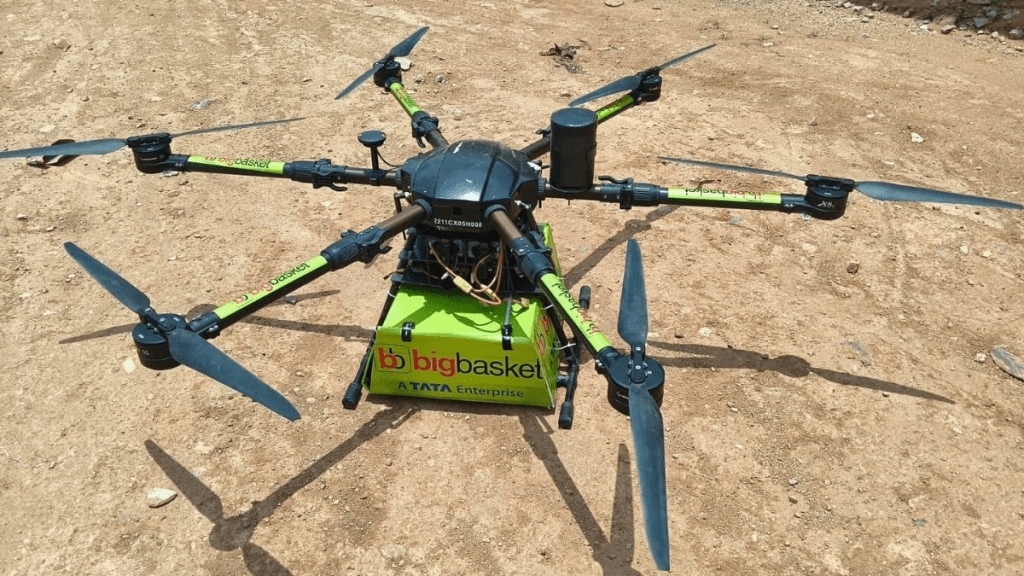A pioneering initiative in Bengaluru is not just delivering groceries in record time but is also heralding a significant shift in the economics of quick commerce. At Prestige Falcon City on Kanakapura Road, BigBasket’s drone delivery service, BBFly, is demonstrating how this technology can dramatically slash operational costs for companies, with a mere two drones achieving the daily output of several human delivery executives.
The trial, operational since March and recently launched officially, sees two drones handling an impressive 40 to 50 orders a day. This is a stark contrast to a typical delivery person who might manage 20-30 orders, heavily dependent on traffic and distance. The implication is clear: fewer personnel on the ground translates directly to reduced wage bills, a major component of operational expenditure for delivery platforms, especially quick commerce, where speed overrules everything.
“This is an efficient strategy in the quick commerce business as it saves a lot of time and labour,” a BigBasket staff member involved in the project stated. “Delivery executives don’t have to navigate heavy traffic to make timely deliveries. The drones handle it hassle-free.” This efficiency extends beyond just speed. With drones taking to the skies, companies can expect to see a reduction in fuel costs, vehicle maintenance, and potentially even insurance liabilities associated with a large fleet of ground-based vehicles. Crucially, BigBasket’s “BBfly” initiative is offering these five-to-ten-minute aerial deliveries at no extra charge to the customer, suggesting that the cost savings are substantial enough to absorb the investment in drone technology and operations.
The potential for cost optimisation is a game-changer. Karan Walia, Co-founder of logistics startup SHIPZIP, highlighted this on LinkedIn: “A single drone in Bengaluru completes twice as many deliveries in just five minutes while cutting carbon emissions in half. What makes this more practical is that it isn’t raising costs for consumers.” This Bengaluru experiment could redefine the quick-commerce landscape. By overcoming the perennial challenge of urban traffic, drones can expand the effective delivery radius of “dark stores”, the local fulfilment centres, from the current average of about 1.8 km to as much as 5 km. This allows businesses to serve a significantly larger customer base from a single existing facility, further optimising real estate and inventory costs.
While the technology is proving its mettle, industry insiders acknowledge that widespread adoption faces hurdles. “Much work remains before this service can be expanded to other parts of the city, particularly in terms of air route clearances and operational strategy,” the BigBasket representative cautioned. Evolving regulatory frameworks and the need to adapt urban infrastructure for safe drone operations are key challenges that need to be addressed.
Despite these obstacles, the allure of dramatically reduced operational costs combined with enhanced delivery speeds is a powerful motivator. If these initial trials continue to yield positive results and regulatory pathways become clearer, Bengaluru’s skies could soon be a common pathway for everyday essentials, marking a significant and cost-effective leap forward for India’s burgeoning quick commerce sector. The question is no longer if drone deliveries will become mainstream, but how quickly the ecosystem can adapt to unlock their full, cost-saving potential.

